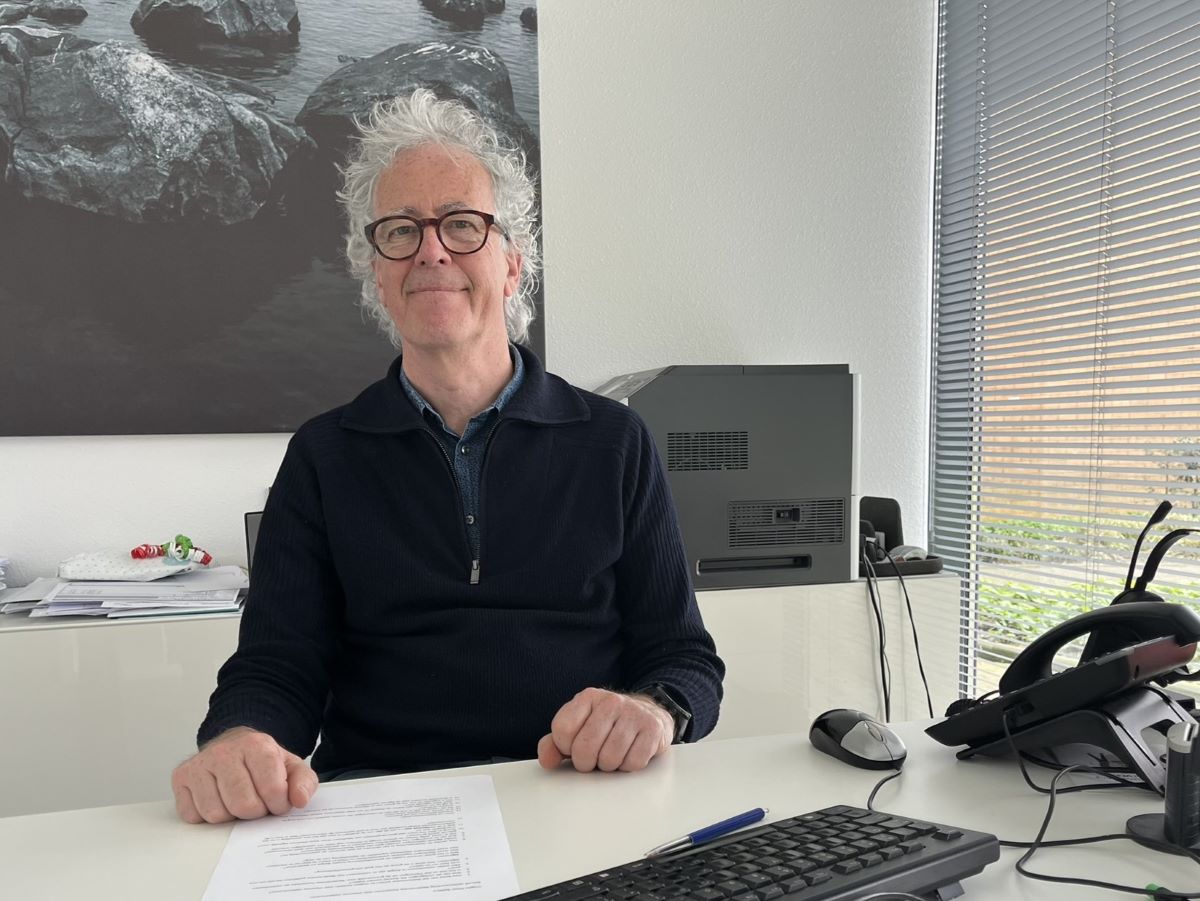Healthcare digitalisation has been progressing well for many years, making it increasingly possible to exchange medical information. However, many steps still need to be taken. For example, across national borders: some Flemish hospitals still cannot send letters digitally to Dutch GPs. GP Peter Ballière from Breskens, Zeeland, has experience with this issue.

Peter Ballière – GP in Zeeuws Vlaanderen on digital letters from Belgian hospitals
It makes sense that residents of border regions may seek treatment not only in their own country but across the border as well. ‘Many people in Zeeuws Vlaanderen go to hospitals in Belgium,’ Ballière says. ‘From Hulst, you reach Sint-Niklaas sooner than Goes. And for tertiary care, you might even need to go to Rotterdam. So, having closer options, even in Belgium, is helpful.’ Besides, in principle, Dutch patients have free hospital choice, making Belgium a natural choice for some residents..
Paper records
But what about communication between Belgian hospitals and Dutch GPs? There are still sometimes technical barriers. A few years ago, doctors in Flemish hospitals who treated Dutch patients would send their letters to Dutch GPs on paper. Those letters had to be manually entered by Dutch GPs into their information system, which was cumbersome. This could now be unnecessary, provided hospitals enable it. By using Enovation EDI, a secure electronic data exchange, letters can be sent digitally.
‘It’s so much easier,’ says Ballière. ‘It’s surprising that more hospitals don’t do this. We have a staff shortage. Isn’t it strange to ask an assistant to scan a letter and enter it into the system? The more manual tasks, the more room for errors.’
Step by step
Fortunately, a small number of Flemish hospitals (Knokke, Ghent, Tongeren) have now switched to a method that allows such letters to be sent digitally to the GP’s system. Ballière: ‘It would be great for our region if, for example, the Sint Jan hospital in Bruges took this step as well.’
High cross-border healthcare demand
It’s clear that many Zeeuws-Vlaanderen residents use Belgian hospitals. Ballière does not have exact figures. ‘But I estimate that, at our practice in Breskens, which has 6,800 patients, between 10 and 20 percent cross the border for care.’
- How does it work?
► The doctor at the Flemish hospital prepares a message in the EPR
► The message is sent via Enovation Mail from the information system
► Enovation Mail translates the message into an Edifact message
► The GP’s information system retrieves the translated message from the Enovation Mail mailbox
► The GP can view the message in the GP information system and link it to the EPR
► The system works with any standard GP information system
One-way traffic
While Dutch residents use Flemish hospitals, the reverse is not true. This is because the preferred health insurer in Zeeuws-Vlaanderen, CZ, has no issues with patients seeking care in Belgium. Ballière: ‘However, because of a law in Belgium, a Flemish patient is prohibited from seeking non-emergency care in a Dutch hospital. They may only go in the case of an emergency or while on holiday nearby.’ Health insurance in Belgium is also organised differently, with a national health fund.
More differences
There are additional differences between Belgian and Dutch healthcare. Doctor Ballière, a native of Ghent, summarises: ‘In the Netherlands, the doctor is in charge; in Belgium, the patient is.’ This was even why Ballière chose to become a GP in the Netherlands 22 years ago. ‘In Belgium, in the past, patients didn’t need to register with a GP. They could decide when to visit any GP or go directly to a specialist. Thankfully, this has changed, as it added extra pressure on healthcare. However, patients still don’t need a GP referral to visit a hospital.’
Personal Health Record (PHR)
‘Within Belgium, hospitals and GPs can send everything digitally amongst themselves,’ Ballière explains. ‘In Belgium, can always access their health records anytime, anywhere, using their ID card. This is centrally regulated in Belgium. I believe there are about 18 different PHRs, while Belgium has one managed by the government.’
Want to learn more?
If you’d like to learn more about digital collaboration between Belgian hospitals and Dutch GPs, or about general collaboration between healthcare organisations in the two countries, feel free to contact Enovation for an informal consultation.
Contact us




